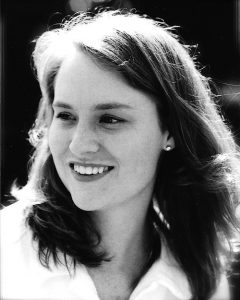– Blog post written by Daniel Carillo

In the first chapter of his Gospel, John gives an account of how Jesus selects the apostles. Interesting approach – John doesn’t give an account of each apostle’s first encounter with Jesus. Instead, he focuses on four – Andrew (Peter), Simon, Philip, and Nathanael.
Ah, Nathanael.
Nathanael first hears about Jesus from Philip, who tells him, “We have found him of whom Moses in the law and also the prophets wrote, Jesus of Nazareth, the son of Joseph.” Nathanael’s response is shocking – “Can anything good come out of Nazareth?”
Doubt. Nathanael was saying, “I doubt it!” He was questioning. He could not believe. This was impossible.
Doubt. What is it, and how is it able to, so easily, grab hold of us? Twist our thoughts? Fill us with dread and anxiety?
Looking back, I recall stories and episodes in my life when I was riddled with doubt. I’m sure we all have these memories. The story of how I was selected for my position as a professor in the Music Department at the City College of New York is a very clear account of how doubt works in us. Debilitates us. But it is also a long, arduous and boring story, so I won’t subject you to it. In truth, and probably more on point, I don’t want to subject myself to the memory of it. It is still painful, 24 years later, to recall how I was transformed by intense feelings of self-doubt during the selection process.
Instead, I will tell another story of doubt. This is a lighter story, from my teenage years, and certainly not of any real importance in the greater scheme of things. However, it was very important to me at the time. And, it must still occupy a place of importance in the recesses of my memory, as I am about to retell it – forty-four years after the fact!
In November of 1969, I was a high school senior attending an all boys Catholic school in the Bronx, New York. Throughout my childhood, I was a baseball fanatic, as was my father and older brother, and basketball wasn’t a sport in which our family invested very much interest. However, during high school, and under the influence of a very charismatic Latin teacher, basketball became a passion for me. I became a fanatical supporter of the New York Knicks.
I would watch the games on the local New York TV station, WOR channel 9, whenever I could. When the Knicks were out on the west coast, I would sneak a transistor radio into my room and hide it under my pillow. I would feign being asleep, and when I was sure my parents were asleep, I would tune into the game and listen, with the radio barely audible. I’m sure my dad knew what I was up to, but he pretended not to know and probably, secretly, approved.
Every Knicks fan in 1969 lived with the shame that came from the fact that the team had never won a championship. All that was about to change. On the night in question, November 28, 1969, the Knicks were playing the Cincinnati Royals. They had a 17-game winning streak on the line, and were down by 6 points with 16 seconds left in the game. I was sure they couldn’t win this game, and the winning streak would come to an end at 17 games.
I was filled with doubt. These players were my heroes. I followed them with keen interest every day. I poured over the box scores in the daily newspapers every day to see how many points my favorite players scored, how many rebounds the big men pulled down, how many assists the guards had. In fact, I even patterned my jump shooting technique after my favorite player, Dick Barnett, wildly kicking my legs up to the side as I released the ball from my hands.
But on this night, with 16 seconds left in the game, and with my team down 105-100, I was filled with doubt. I knew as well as anybody that it is impossible to score 6 points in 16 seconds. Especially against the Cincinnati Royals, the team of the legendary Oscar Robertson, still considered by some of my generation the greatest guard to ever play the game. The Royals, a team whose player/coach Bob Cousy, was a legend of the game with a storied career as a collegiate athlete at Boston College and as a professional with the Royals.
I was filled with doubt. I was downtrodden. I could predict the future, and the future would not include a Knicks victory. Not this night.
But on this night, a miracle happened. Cousy put himself into the game to protect the lead after Robertson, who had scored 33 points on the night, fouled out. I wondered at his decision. After all, he was far past his prime, and had come out of retirement to fill a player position with the team. He committed a turnover – an errant pass that the Knicks picked off and converted for 2 points at the other end. Then one of the Knicks players was able to steal the ball from him and they converted this into 2 more points.
At the sound of the buzzer, the scoreboard read, Knicks 106, Royals 105. I was jumping and hollering for joy all around my house. The winning streak extended to 18 games – an NBA record that held until 2000, when the Los Angeles Lakers won 19 consecutive games. I guess, in the euphoria of the moment, I forgot how dejected and full of doubt I had been just precious minutes earlier.
How strong is doubt? How much is it able to influence our outlook, our attitude, our mood? If my memory of this situation is an indicator, the answer is greatly. I know I remember this particular game because of the improbable come-from-behind win. Admittedly, that is hard to forget. But I’m also certain, although I don’t like having to admit it, that I remember this amazing game because of the intense doubt that filled me.
So, I ask again, what is doubt? Doubt lives with other negative emotions. Despair. Hopelessness. Dejection. Dread. These things feed doubt, and doubt nourishes them. But they are not doubt.
Among the definitions of doubt we find – to be uncertain about; to consider questionable or unlikey; to hesitate to believe; to be apprehensive. Yes, all true and accurate. Among the definitions, we also find – to fear; to mistrust. Yes. That’s it. Fear and mistrust. Those are the insidious characteristics of doubt. These are the things that cause our anxiety to spike. Cause us to be paralyzed and debilitated.
History is filled with famous doubters.
“Modest doubt is called the beacon of the wise.” William Shakespeare
“If you would be a real seeker after truth, it is necessary that at least once in your life you doubt, as far as possible, all things.” Rene Descartes
“The person who lives by hope will die by despair.” Italian proverb
Perhaps the most famous doubter in history is the apostle Thomas. In fact, the term Doubting Thomas comes from the account in the Gospel of John, chapter 20. After the Resurrection, Jesus visited many of the apostles and showed them the wounds on his hands, feet and side, and they believed. But Thomas was not with them, and when they told him of the visit he responded, “Unless I see in his hands the mark of the nails, and place my finger into the mark of the nails, and place my hand into his side, I will never believe.” And as the account goes, eight days later, Jesus again appeared to the apostles, and this time Thomas was among them. He tells Thomas to put his finger into the wounds, saying, “Do not disbelieve, but believe.” Thomas responds, exclaiming, “My Lord and my God!” Thomas believes. And Jesus responds, “Have you believed because you have seen me? Blessed are those who have not seen and yet have believed.”
What causes Thomas to overcome his doubts? Physical proof? Divine intercession? I’m not sure. The account does not say that Thomas actually put his fingers into the wound. Personally, I don’t think he did. Something else dispelled his doubt.
FAITH.
Hope conquers fear. Joy overcomes dejection. Light abolishes darkness. And faith dispels doubt.
What is your story of doubt? How did doubt debilitate you? How does doubt debilitate you?
Was it when you proposed to your wife? Surely she couldn’t accept a life being married to you. She is so pretty. So much smarter. You can’t possibly fulfill her hopes and dreams.
Was it in high school, when you were waiting for a boy to ask you to the prom? Nobody will ask me. I’m awkward. I’m just not pretty. The other girls have so much more personality.
Was it when you were in line for a promotion? I’m too old? The other person has so much more experience? She went to a better school. He is funnier and more personable.
Are you filled, today, with doubt? What is going to happen? I can’t handle this. I’m just not strong enough! Why is this happening?
Faith.
… for you know that the testing of your faith produces steadfastness. – James 1:3b
Have faith – and be steadfast, not anxious.
… “If you have faith like a grain of mustard seed, you could say to this mulberry tree, ‘Be uprooted and planted in the sea,’ and it will obey you.” – Luke 17:6
Have faith. Please have faith. With faith you will overcome doubt.
“Have faith in God. Truly, I say to you, whoever says to this mountain, ‘Be taken up and thrown into the sea,’ and does not doubt in his heart, but believes that what he has said will come to pass, it will be done for him.” – Mark 11:22-23




